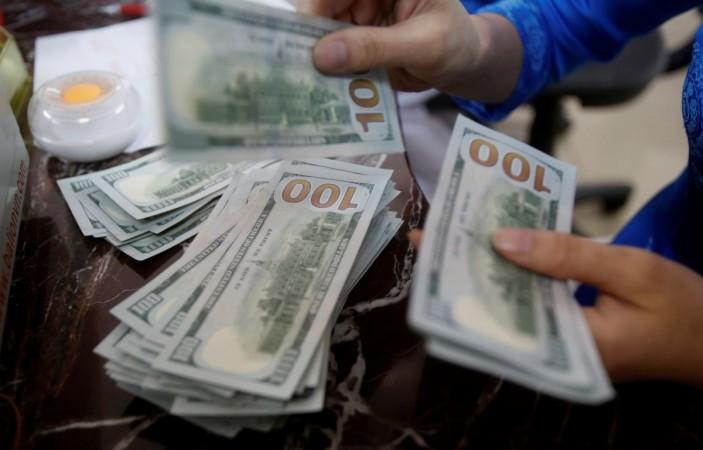
The dollar fell versus the yen on Monday, dragged lower by sliding Tokyo stocks and data showing Japan logged a much larger-than-expected trade surplus in April.
The greenback was down 0.5 percent at 109.720 yen, pulling back from a three-week high of 110.59 scaled on Friday.
Data on Monday showed Japan's trade balance in April was 823.5 billion yen ($7.50 billion), against economists' forecasts for a 492.8 billion yen increase. Japan logged a trade surplus for the third consecutive month.
If a country's exports exceed its imports, as in Japan's recent case, there is in theory a high demand for its goods and therefore for its currency.
"The April trade surplus was due in large part to weak imports. Still, the data was enough to trigger yen buying," said Masashi Murata, senior currency strategist at Brown Brothers Harriman in Tokyo.
"The trade numbers came out against a political backdrop that does not favor Japan intervening to weaken the yen, thus making it relatively easy for participants to buy back the yen."
A Group of 7 finance ministers' meeting concluded on Saturday with the United States warning Japan against intervening to weaken the yen, displaying a well known rift between the two countries on currency intervention.
That disagreement on currencies helped push the Nikkei down more than 1 percent, adding further support for the safe-haven yen.
The U.S. currency got off to a steady start to the week against other major peers, with the dollar index remaining within striking distance of a two-month peak after markets last week moved to price in a greater chance of an imminent hike in U.S. interest rates.
The dollar index was last at 95.195, little changed from where it closed in New York on Friday and not far from Thursday's high of 95.520. It rose 0.8 percent last week, climbing for a third week.
The euro was effectively flat at $1.1231, staying within distance of a two-month trough of $1.1180 plumbed on Thursday.
Emboldening dollar bulls, recent comments from Federal Reserve officials as well as minutes of the Fed's April meeting have convinced many analysts and investors that a rate hike in June or July is a real possibility.
More Fed officials are due to speak later on Monday including James Bullard, John Williams and Patrick Harker. Last Thursday, New York Federal Reserve President William Dudley said the U.S. economy could be strong enough to warrant an interest rate increase in June or July.
"Market odds of a June rate hike ended the week at around 30 percent, up from 4 percent a week ago. That is a significant repricing," analysts at ANZ wrote in a note to clients.
"We continue to see June as very much a 'live' meeting."
The resurgent dollar has taken a heavy toll on commodity currencies, none more so than the Australian dollar which was further weighed by expectations of cuts in interest rates at home.
The Aussie was last at $0.7230, having been as low as $0.7175 last week, a trough last seen more than two months ago.

















